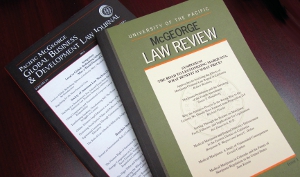The Robert Wendland case: Legal implications of the Wendland case for end-of-life decision making
Document Type
Article
Publication Date
2002
Abstract
In Conservatorship of Wendland, the California Supreme Court established a high standard of proof for end-of-life decision making on behalf of patients who are incompetent but conscious and have a court-appointed conservator.1 The court's opinion establishes an easier standard of proof for some situations where there is no conservator, but the opinion leaves many questions unanswered. We address the implications of Wendland for health care professionals in California and, in particular, the questions of what evidence of a patient's end-of-life wishes is required for physicians to withhold life-sustaining treatment and how strong that evidence must be in various situations.
Publication Title
Western Journal of Medicine
ISSN
0093-0415
Volume
176
Issue
2
First Page
124
Last Page
127
Recommended Citation
Jon B. Eisenberg & J. C. Kelso,
The Robert Wendland case: Legal implications of the Wendland case for end-of-life decision making,
176
Western Journal of Medicine
124
(2002).
Available at:
https://scholarlycommons.pacific.edu/facultyarticles/417



